Dr. Nguyen Tri Dung - General Director of Minh Tran Company is one of the first few overseas Vietnamese invited by the Vietnamese Government to contribute to finding solutions to help the country overcome difficulties after the country's reunification. At the age of 75, he still travels between Vietnam and Japan. He believes that the milestone of celebrating the 50th anniversary of the establishment of diplomatic relations between Vietnam and Japan (1973-2023) is an opportunity for the two countries to build a new future together. On that foundation, we can together build a cooperation plan for the next 20 years, 50 years.
Returning to Vietnam as an economic expert of the United Nations, Dr. Nguyen Tri Dung has made an important contribution to building many programs to connect businesses between Vietnam and Japan. Over the years, Minh Tran - Vietnam Dream Incubator built by Dr. Nguyen Tri Dung has become a connecting point for organizations, businesses, and individuals dedicated to developing the country's economy and culture. And he is always willing to share valuable lessons about "Japanese development thinking".
My interview call with Dr. Nguyen Tri Dung was at the time when he had just returned to Japan to visit his family. Sharing his feelings on the occasion of the 50th anniversary of the establishment of diplomatic relations between Vietnam and Japan, he said: "I am very happy that my contributions to promoting the Vietnam - Japan relationship have been recognized by both governments ."
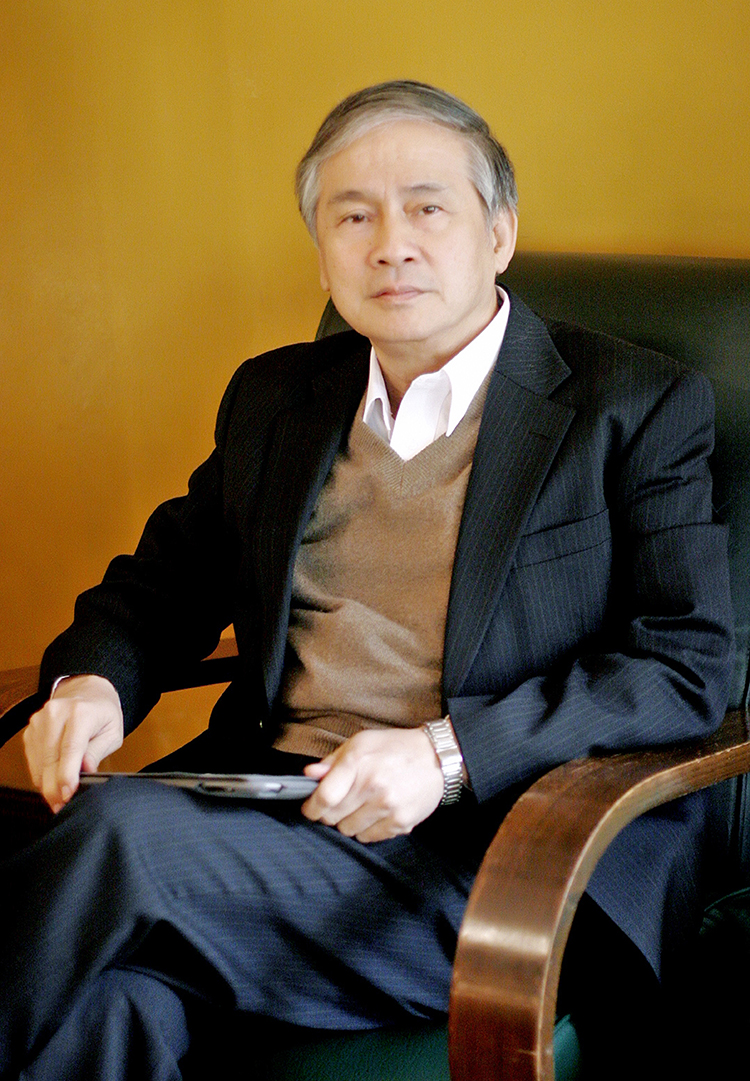 |
* Returning to Japan this time, how do you see the current urban appearance of Vietnam compared to Japan?
- It can be said that the urban appearance in our country's big cities has become more modern, with many works that create an impression of architecture and landscape. From the outside, the way of life between Vietnamese and Japanese cities is not as different as before. However, in terms of urban traffic, in Japan the organization is more tight and reasonable, and the community also has a higher traffic awareness.
* From the perspective of an intellectual and businessman, what progress have Vietnam and Japan made in economic relations and cultural exchange over the past 50 years?
- After establishing diplomatic relations, both sides need time to understand each other. In the early stages, a part of the people of the two countries questioned the reason for establishing cooperative relations. However, as relations, investment, and cultural exchanges between the two countries increased, this question no longer arose. The relationship between the two countries has become closer and more friendly. The Vietnamese and Japanese people have good feelings for each other.
We clearly see the growing cooperation between Vietnamese enterprises and Japanese enterprises and vice versa. Many Japanese enterprises have been doing business in Vietnam for a long time. In the past 5 years, the number of Vietnamese workers working in Japan has increased and in the opposite direction, many Japanese people also live in big cities in Vietnam.
From a low starting point, Vietnam now has many developed industries but they are not concentrated, still mainly processing, lacking chain linkage. Therefore, cooperation between Vietnamese and Japanese enterprises still has a lot of room for development to compete with other countries in the ASEAN bloc.
The 50th anniversary of the establishment of diplomatic relations between Vietnam and Japan is an opportunity for the two countries to build a new future. On that foundation, we can together build a cooperation plan for the next 20 years, 50 years.
* During the process of connecting businesses of the two countries in trade and culture, which memory left the most impression on you?
- Returning to my homeland after the reunification, realizing that the country was still facing difficulties and the relationship between the two countries was not favorable, I established the Japan Citizens Association to Support Vietnam, donated and presented more than 1,200 sewing machines to 60 vocational training centers for women to develop the economy. The program received a strong response and spread throughout Japan. That was also the premise for me to organize cultural exchanges and business connections for enterprises between the two countries later, including the Vietnam - Japan Connection Network (JAVINET). This is a Vietnam - Japan cooperation program that I founded to promote business in the Japanese business community in Vietnam and mobilize a number of retired intellectuals and experts to work in Vietnam over the past 20 years.
* As a connector, what do you think are the similarities in business culture between Vietnam and Japan? Are there any common phrases about the personalities of Japanese and Vietnamese businessmen that you can summarize?
- The most obvious similarity in the business culture of Japanese and Vietnamese people is the affection for family. Vietnamese people mostly live for their family, but their sense of community is not clear. Japanese people also live for their family, but their sense of community is very high. When cooperating with partners from Western countries, Vietnamese businesses will see that they rely on the law to solve all problems. But when cooperating with Japanese businesses, they will see that they consider cooperation very carefully, avoiding disputes and lawsuits.
Furthermore, the most obvious similarity in business views between Vietnamese and Japanese businessmen is maintaining trust and minimizing unnecessary disputes. This is similar to married life, living together will have conflicts. A happy family is a harmonious marriage between husband and wife and the ingenuity of both sides.
* Many Vietnamese businessmen are concerned about their successors. Meanwhile, in Japan, there are many businesses that have existed for hundreds of years. How do they choose and train their successors, sir?
- Choosing a successor is a very difficult task. In the region, because of its long history of doing business, Japan is a country that does this very well. They choose successors for the development of the business. Toyota is a vivid example of this. From a textile machinery manufacturing company, then establishing an automobile company based on textile technology, Toyota has gone through many generations but the family members have not inherited continuously. The Japanese point of view is to choose talented and virtuous people to become the next leader.
When they cannot choose a successor within the family, the Japanese will choose an outsider. And the chosen person must have gone through many positions and have made many contributions to the business. They prepare very carefully for this. Meanwhile, the Vietnamese often want to choose someone within the family.
* From Honda's story in the book Honda Soichiro - Turning dreams into power to move forward, which you are the translator of, what advice do you have for Vietnamese businessmen who are struggling to find a successor?
- Honda does not bring anyone from the family into the company. They look for talented people to inherit leadership and lead the business. When the whole company evaluates and highly values their abilities, that person will feel secure in developing the business.
In Japan, even if they have a son, if he is not "worthy", they still choose a son-in-law. They have a system of raising the son-in-law, changing his family name and declaring him as a son of the family. And when he joins the family, the son-in-law will feel his responsibility to the business and society is greater. This is still very strange in Vietnam.
In my opinion, Vietnamese businesses should think deeply about this issue. When I translated the work Honda Soichiro - Turning Dreams into Power to Go Forward, I also wanted to help domestic entrepreneurs have more information and references on building and developing corporate culture. In any country, choosing someone from the family to succeed them brings a sense of security. But whether in politics or business, thinking "father to son" is not necessarily a good way of thinking.
* According to your observation, compared to 20 years ago, what changes have occurred in Vietnamese enterprises when working with Japanese enterprises?
- Compared to 20 years ago, in many aspects and at many levels, Vietnamese enterprises have had experience in doing business with Japanese enterprises, have achieved certain achievements and have made great strides compared to the initial stage. Both sides have had understanding and sympathy. In Vietnamese families, many products of Japanese enterprises are present and in the opposite direction, many Vietnamese products also appear in Japan. Many new Japanese technologies have been successfully transferred to Vietnam.
But in the context of global competition, we cannot be complacent with what we have. In terms of communication with Japanese businesses, Vietnamese businessmen need to improve their English or Japanese, and also need to learn more about Japanese culture. Currently in Vietnam, there are many translated books about Japanese culture, but many documents translated into English are no longer valuable today. For example, there are translated books about Japanese macrobiotic culture, but in reality, in daily life, Japanese people do not express themselves that way.
In general, Vietnamese enterprises have changed positively when cooperating with Japanese enterprises, but it is still at a relative level compared to the demand. Therefore, we must change to have a new future.
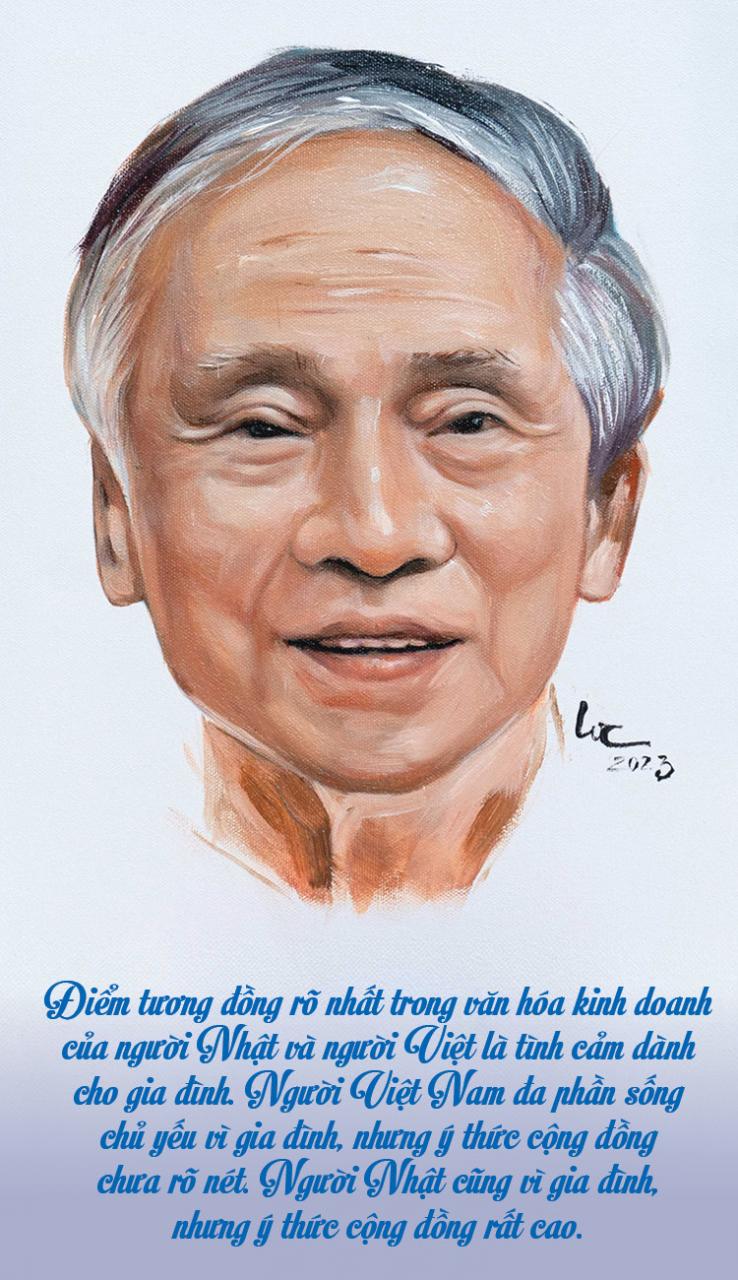 |
* In your opinion, what role does culture play in connecting businesses between Vietnamese and Japanese enterprises?
- Vietnam and Japan have many cultural similarities. For example, Japan has kimono, Vietnam has traditional ao dai. In the field of religion, the Buddha statues of Vietnam and Japan are quite similar. When looking at the Buddha statues of the two countries, we can clearly see the kindness and peace. The cultural category is very broad, each person in different fields will have different definitions and understandings. But above all, I think that the culture of respect is the most important in business. We often use the term win-win cooperation to describe mutually beneficial cooperation, without favoring one side. Therefore, building trust and respect for partners is the most important in the process of business cooperation.
Vietnam and Japan have in common that they have both experienced war, so the people of both countries cherish peace. In the past, when Vietnam was still at war, the Japanese people strongly supported Vietnam's fight for independence. That is also the reason why when I called for support for Vietnamese women sewing machines, it received strong support and spread throughout Japan. The feelings of the people of the two countries are increasingly closer. Many Vietnamese have become Japanese brides and sons-in-law and many Japanese have married Vietnamese people. I myself also have a Japanese wife. In the family, understanding each other is very important to create a strong bond and the same is true in business. Understanding culture is the premise for creating successful long-term cooperation.
* Currently, the Governments of Vietnam and Japan have been preparing activities to celebrate the 50th anniversary of diplomatic relations. As Chairman of JAVINET, what have you been doing to contribute to deepening and enhancing the relationship between businesses of the two countries?
- I think that, along with the activities of the two governments to strengthen diplomatic relations, building a people-to-people diplomacy strategy is extremely important, especially in the current volatile period.
Nowadays, many Japanese people have sympathy for Vietnam and want to move to live here, because they see the friendliness and ease of communication of Vietnamese people. This is also the foundation for further development of good relations between the two countries in the coming years.
The reason I built Minh Tran Garden and organized exchanges and connections here is to contribute to building a model of people-to-people diplomacy. I have been doing this for many years and will continue to carry out this mission. I hope Minh Tran Garden will be a connecting point between the Vietnamese people and the Japanese people.
To celebrate the 50th anniversary of the establishment of diplomatic relations between Vietnam and Japan, I translated into Vietnamese a health care handbook for teenagers widely used in Japan.
It is expected that when I return to Vietnam this time, I will publish this work in early April. This is considered my contribution to the event of 50 years of establishing diplomatic relations between the two countries.
I hope to have cooperation with Saigon Entrepreneur Magazine in the near future to organize a seminar program to connect business and cultural exchange between Vietnamese and Japanese businessmen.
* Thank you doctor for your interesting sharing!
Doanhnhansaigon.vn






![[Photo] General Secretary To Lam presents the First Class Labor Medal to the Vietnam National Energy and Industry Group](https://vphoto.vietnam.vn/thumb/1200x675/vietnam/resource/IMAGE/2025/9/21/0ad2d50e1c274a55a3736500c5f262e5)
![[Photo] General Secretary To Lam attends the 50th anniversary of the founding of the Vietnam National Industry and Energy Group](https://vphoto.vietnam.vn/thumb/1200x675/vietnam/resource/IMAGE/2025/9/21/bb0920727d8f437887016d196b350dbf)




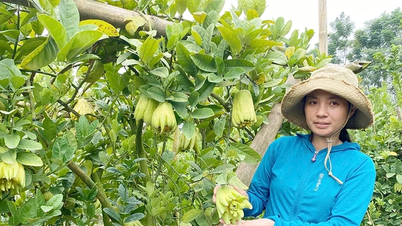





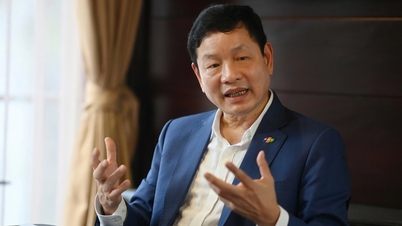










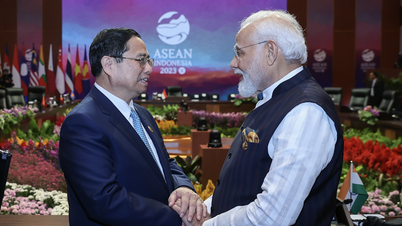








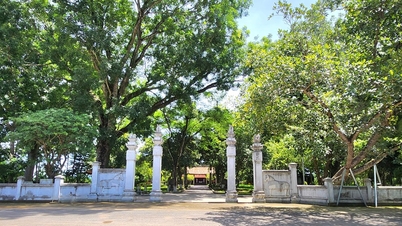









![[VIDEO] Petrovietnam Science and Technology Achievements Exhibition](https://vphoto.vietnam.vn/thumb/402x226/vietnam/resource/IMAGE/2025/9/22/c4d1943f4dbd44dda598ddf61f282a4d)






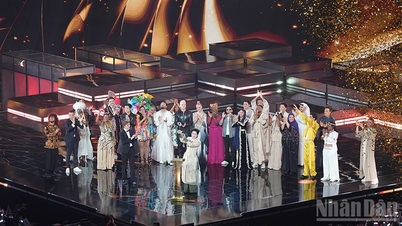







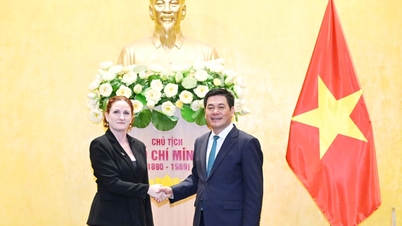

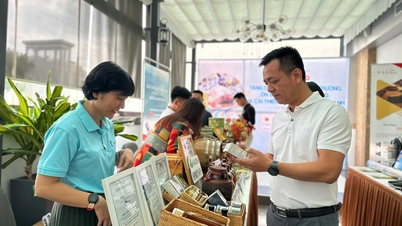
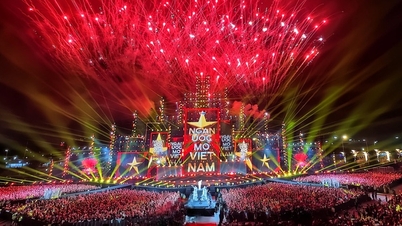






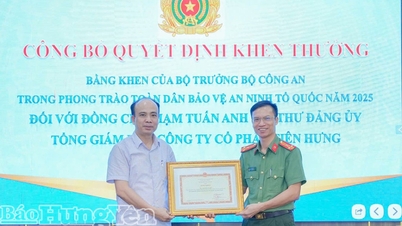



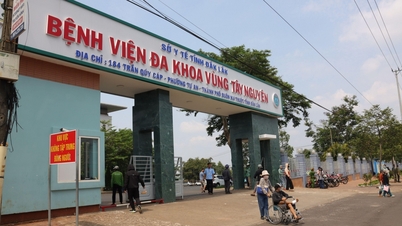











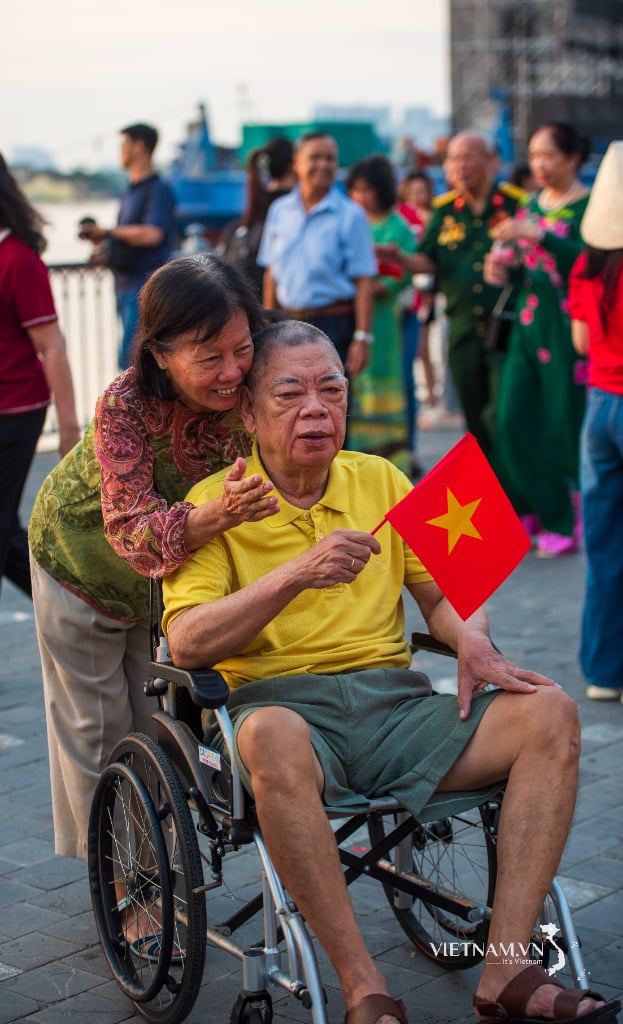



Comment (0)